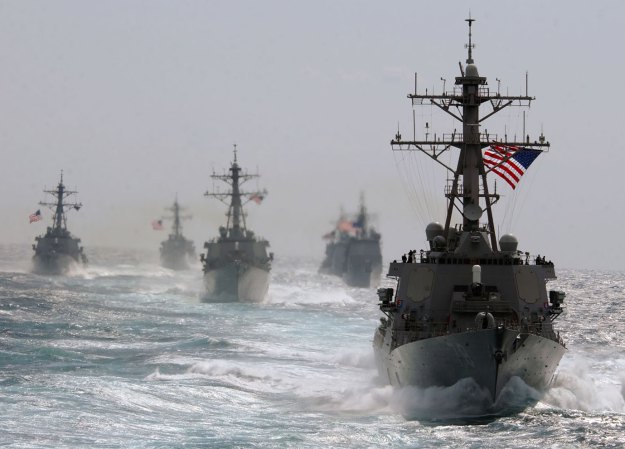 Parler
Parler Gab
Gab
U.S. insists China has been accelerating military buildup to encroach on Western allies in the Indo-Pacific
Sticking to the narrative that the United States should be ready any time to "war" with China – which would mean massive defense budget allocation – Air Force Secretary Frank Kendall back in September warned that the Asian country was already beefing up its military. He also urged that America must optimize its forces to counter the rising threat. "Our job is to deter that war and to be ready to win if it occurs," Kendall said. "We're all talking about the fact that the Air and Space Forces must change, or we could fail to prevent and might even lose a war." He also said that it was vital to prepare for war because China has already created two new military branches: a force designed to counter aircraft carriers, airfields and other critical assets, and a strategic support service that works to achieve information dominance in the space and cyber domains. "China has been reoptimizing its forces for great power competition and to prevail against the U.S. in the Western Pacific for over 20 years," he added. "China has been building a military capability specifically designed to achieve their national goals and to do so if opposed by the United States," he added. U.S.-China relations have reached a low point amid rising tensions over the self-governing island nation of Taiwan, which Beijing sees as historically part of the mainland. According to Andrew Krepinevich, Jr., a senior fellow at the Hudson Institute, China has become increasingly assertive across a wide swath of the Pacific, advancing its expansionist maritime claims and encroaching on the waters of key U.S. allies and important security partners, including Japan, the Philippines, and of course, Taiwan. (Related: Another PROXY WAR in the works? U.S. shaping the Philippines into the next Ukraine.) Given that both China and the United States possess nuclear arsenals, many strategists are concerned about a more catastrophic outcome. People see a direct war between the two countries that could lead to uncontrolled escalation, a possibility that Biden's regime has been trying to instill in the public's perception as a from of mind conditioning. For critics, a scenario like this should be taken seriously by U.S. policymakers. But then again, what if this is what the government would intend to happen? WWIII.news has more stories related to wars the United States is waging against other nations.Sources for this article include:
DailyMail.co.uk WashingtonPost.com TheHill.com ForeignAffairs.comBiden’s regulation of AI usage raises concerns about NARRATIVE CONTROL
By Richard Brown // Share
Report: Birmingham, Alabama has highest cost of crime per capita in the U.S.
By Ramon Tomey // Share
U.S. destroyer intercepts drone, missile attacks launched by Houthi rebels toward Israel
By Richard Brown // Share
Governments continue to obscure COVID-19 vaccine data amid rising concerns over excess deaths
By patricklewis // Share
Tech giant Microsoft backs EXTINCTION with its support of carbon capture programs
By ramontomeydw // Share
Germany to resume arms exports to Israel despite repeated ceasefire violations
By isabelle // Share










